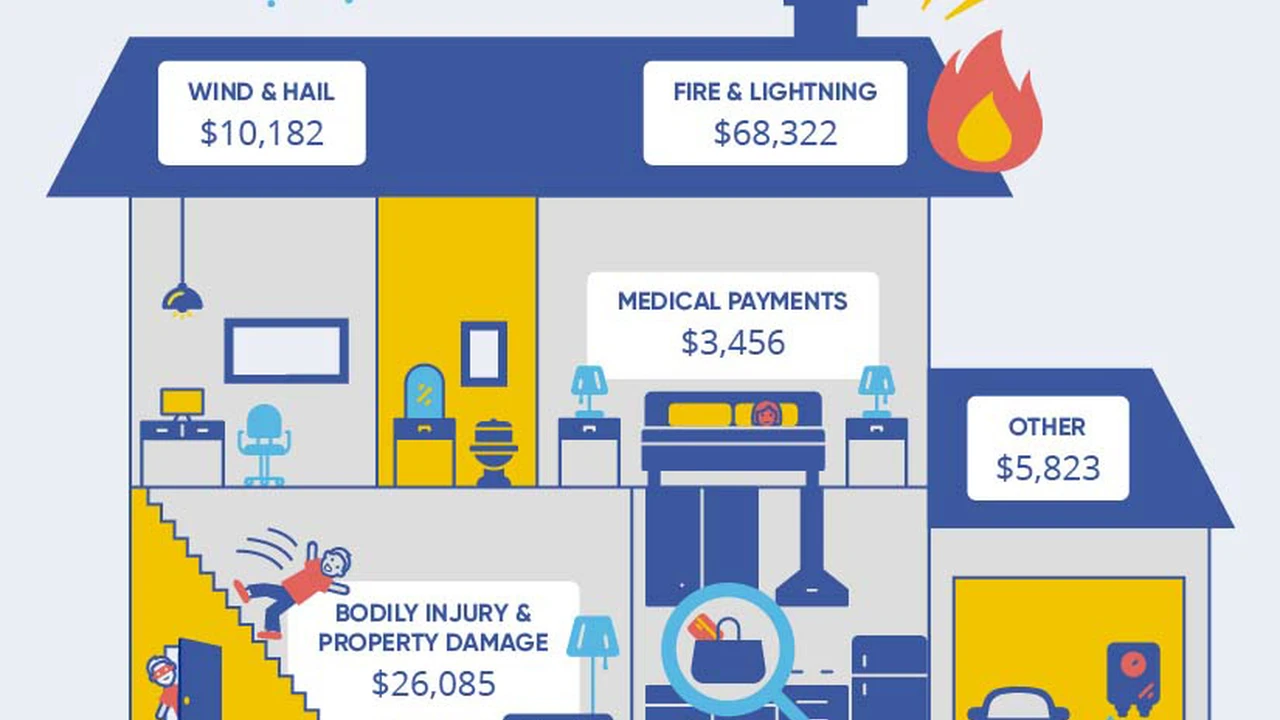7 Best Health Insurance Plans for Self-Employed Individuals

Understanding Health Insurance Needs for the Self Employed
Being self-employed comes with a unique set of challenges and rewards. One of the biggest differences between being employed and being your own boss is managing your own benefits, and health insurance is arguably the most critical. Unlike traditional employment where employers often shoulder a significant portion of health insurance costs, self-employed individuals are typically responsible for the entire premium. This can seem daunting, but understanding your options is the first step towards securing affordable and comprehensive coverage.
Why is health insurance so crucial for the self-employed? The answer is simple: peace of mind and financial security. Unexpected medical expenses can quickly derail your business and personal finances. A sudden illness, an accidental injury, or even routine preventative care can lead to substantial bills. Without health insurance, you're left to bear the full brunt of these costs, potentially wiping out savings and even forcing you into debt. Health insurance provides a safety net, ensuring that you can access the medical care you need without jeopardizing your financial stability.
Choosing the right health insurance plan requires careful consideration of your individual circumstances. Factors to consider include your age, health status, income, and risk tolerance. Do you have any pre-existing conditions? Do you anticipate needing frequent medical care? Are you comfortable with a higher deductible in exchange for lower monthly premiums? Answering these questions will help you narrow down your options and identify the plans that best meet your needs.
Exploring Different Types of Health Insurance for Self Employed Individuals
The health insurance landscape can be confusing, with a variety of plan types and terminology. Here's a breakdown of some of the most common options available to self-employed individuals:
- Individual Health Insurance Plans (Marketplace Plans): These plans are available through the Health Insurance Marketplace, established under the Affordable Care Act (ACA). They offer a range of coverage levels, from bronze (lowest premiums, highest out-of-pocket costs) to platinum (highest premiums, lowest out-of-pocket costs). Marketplace plans are guaranteed issue, meaning you can't be denied coverage due to pre-existing conditions. You may also be eligible for premium tax credits, which can significantly reduce your monthly costs, depending on your income.
- Short-Term Health Insurance: These plans offer temporary coverage for a limited period, typically three months to a year. They can be a good option if you're between jobs, waiting for open enrollment, or need coverage while you explore other options. However, short-term plans often have limited coverage and may not cover pre-existing conditions. They are generally not ACA-compliant, meaning they don't offer the same consumer protections as Marketplace plans.
- Health Savings Accounts (HSAs) with High-Deductible Health Plans (HDHPs): An HSA is a tax-advantaged savings account that can be used to pay for qualified medical expenses. To be eligible for an HSA, you must be enrolled in a high-deductible health plan (HDHP). HDHPs typically have lower premiums but higher deductibles. The money you contribute to an HSA is tax-deductible, grows tax-free, and can be withdrawn tax-free for qualified medical expenses. This can be a great option for self-employed individuals who want to save for future healthcare costs and reduce their taxable income.
- Association Health Plans (AHPs): These plans are offered by professional associations or trade groups to their members. AHPs can offer more affordable coverage than individual plans, but they may also have limitations on coverage and eligibility.
- Spousal Coverage: If your spouse has health insurance through their employer, you may be able to enroll in their plan as a dependent. This can be a convenient and affordable option, especially if your spouse's employer pays a significant portion of the premium.
- COBRA (Consolidated Omnibus Budget Reconciliation Act): If you recently left a job with employer-sponsored health insurance, you may be eligible to continue your coverage through COBRA. COBRA allows you to maintain your existing health insurance coverage for a limited time, typically 18 months, but you'll be responsible for paying the full premium, which can be quite expensive.
- Medicaid: Medicaid is a government-funded health insurance program for low-income individuals and families. Eligibility requirements vary by state, but if you meet the income criteria, Medicaid can provide comprehensive coverage at little or no cost.
Top 7 Health Insurance Plans Recommendations for Self Employed Individuals
Now, let's dive into some specific health insurance plans that are well-suited for self-employed individuals. Keep in mind that availability and pricing can vary depending on your location, so it's important to compare plans in your area.
1 Blue Cross Blue Shield: A Reliable Choice for Comprehensive Coverage
Blue Cross Blue Shield (BCBS) is a well-established and reputable health insurance provider with a wide network of doctors and hospitals. They offer a variety of individual health insurance plans through the Health Insurance Marketplace, including HMOs, PPOs, and EPOs. BCBS plans are known for their comprehensive coverage and strong customer service. They often have a good range of preventative care services covered, making them a solid choice for those who prioritize access to a large network and comprehensive benefits.
Use Cases: BCBS is a good option for self-employed individuals who want a reliable and comprehensive health insurance plan with a wide network of providers. It's also a good choice for those who have pre-existing conditions or anticipate needing frequent medical care.
Product Comparison: BCBS offers different plan types, including HMOs, PPOs, and EPOs. HMOs typically have lower premiums but require you to choose a primary care physician (PCP) and get referrals to see specialists. PPOs offer more flexibility, allowing you to see any doctor in the network without a referral, but premiums are generally higher. EPOs are a hybrid of HMOs and PPOs, offering a wide network of providers but not requiring a PCP or referrals.
Detailed Information: Pricing for BCBS plans varies depending on your location, age, health status, and the plan type you choose. You can get a quote and compare plans on the Health Insurance Marketplace or directly from the BCBS website. BCBS also offers a mobile app that allows you to access your insurance card, find a doctor, and manage your claims.
2 Kaiser Permanente: Integrated Care for a Holistic Approach
Kaiser Permanente is a unique health insurance provider that operates as both an insurance company and a healthcare provider. They offer integrated care, meaning that your doctors, hospitals, and insurance are all under one roof. This can lead to better coordination of care and a more seamless healthcare experience. Kaiser Permanente plans are typically HMOs, which means you'll need to choose a primary care physician and get referrals to see specialists. However, their network is generally comprehensive within their service areas.
Use Cases: Kaiser Permanente is a good option for self-employed individuals who value integrated care and prefer to have all their healthcare services coordinated by a single organization. It's also a good choice for those who live in areas where Kaiser Permanente has a strong presence.
Product Comparison: Kaiser Permanente primarily offers HMO plans, but they may also offer other plan types in some areas. Their plans typically have lower premiums than PPOs but require you to stay within their network for coverage.
Detailed Information: Pricing for Kaiser Permanente plans varies depending on your location, age, health status, and the plan type you choose. You can get a quote and compare plans on the Health Insurance Marketplace or directly from the Kaiser Permanente website. Kaiser Permanente also offers a mobile app that allows you to access your insurance card, schedule appointments, and communicate with your doctors.
3 Cigna: A Broad Network and Flexible Options
Cigna is another major health insurance provider with a large network of doctors and hospitals across the country. They offer a variety of individual health insurance plans through the Health Insurance Marketplace, including HMOs, PPOs, and EPOs. Cigna plans are known for their flexibility and options, allowing you to choose a plan that best fits your needs and budget. They also offer a range of wellness programs and resources to help you stay healthy.
Use Cases: Cigna is a good option for self-employed individuals who want a flexible health insurance plan with a broad network of providers. It's also a good choice for those who value wellness programs and resources.
Product Comparison: Cigna offers different plan types, including HMOs, PPOs, and EPOs. The choice depends on your preference for cost versus flexibility.
Detailed Information: Pricing for Cigna plans varies depending on your location, age, health status, and the plan type you choose. You can get a quote and compare plans on the Health Insurance Marketplace or directly from the Cigna website. Cigna also offers a mobile app that allows you to access your insurance card, find a doctor, and manage your claims.
4 UnitedHealthcare: A Large Provider with Diverse Plans
UnitedHealthcare is one of the largest health insurance providers in the United States, offering a wide range of plans and services. They have a vast network of doctors and hospitals, and their plans are available through the Health Insurance Marketplace and directly from UnitedHealthcare. They provide HMO, PPO, and EPO options, catering to various needs and budgets. UnitedHealthcare also often has partnerships with wellness programs and offers digital health tools to help members manage their health.
Use Cases: UnitedHealthcare is suitable for self-employed individuals looking for a reputable provider with a large network and a variety of plan options. It's a good choice for those who appreciate digital health tools and wellness programs.
Product Comparison: Like other major insurers, UnitedHealthcare offers HMO, PPO, and EPO plans. Their HMO plans may have lower premiums but require referrals to specialists, while PPO plans offer more flexibility but at a higher cost.
Detailed Information: Pricing varies based on location, age, health status, and the specific plan. Quotes can be obtained through the Health Insurance Marketplace or directly from UnitedHealthcare. They also offer a mobile app for managing insurance information and accessing health resources.
5 Oscar Health: Tech Forward Insurance for the Modern Entrepreneur
Oscar Health is a relatively new health insurance company that focuses on using technology to make healthcare more accessible and convenient. They offer individual health insurance plans through the Health Insurance Marketplace in select states. Oscar Health plans are known for their user-friendly mobile app, which allows you to chat with a doctor, schedule appointments, and manage your claims. They also offer free telemedicine visits and other innovative features.
Use Cases: Oscar Health is a good option for self-employed individuals who are tech-savvy and value convenience. It's also a good choice for those who want access to telemedicine and other digital health tools.
Product Comparison: Oscar Health offers a range of plan types, including HMOs and EPOs. Their plans are typically more expensive than traditional HMOs, but they offer more features and benefits.
Detailed Information: Pricing for Oscar Health plans varies depending on your location, age, health status, and the plan type you choose. You can get a quote and compare plans on the Health Insurance Marketplace or directly from the Oscar Health website. Oscar Health also offers a mobile app that allows you to chat with a doctor, schedule appointments, and manage your claims.
6 HSA Compatible Plans: Leveraging Tax Advantages for Healthcare Savings
For self-employed individuals, Health Savings Accounts (HSAs) linked to High-Deductible Health Plans (HDHPs) can be a powerful tool for managing healthcare costs and reducing taxable income. HDHPs typically have lower monthly premiums but higher deductibles, making them more affordable. The HSA allows you to contribute pre-tax dollars, which grow tax-free and can be withdrawn tax-free for qualified medical expenses. This triple tax advantage can significantly reduce your overall healthcare costs.
Use Cases: HSA compatible plans are ideal for self-employed individuals who are generally healthy and comfortable with a higher deductible. They're also a good choice for those who want to save for future healthcare expenses and reduce their taxable income.
Product Comparison: Many insurance companies offer HSA compatible plans, including Blue Cross Blue Shield, Cigna, and UnitedHealthcare. The key is to look for a plan that meets the IRS requirements for an HDHP, which include a minimum deductible and a maximum out-of-pocket expense limit. Compare the premiums, deductibles, and out-of-pocket maximums of different HDHPs to find the best fit for your needs.
Detailed Information: You can find HSA compatible plans on the Health Insurance Marketplace or directly from insurance companies. Be sure to check the plan details to ensure that it meets the IRS requirements for an HDHP. You'll also need to open an HSA account with a bank or financial institution that offers HSA services. Contribution limits for HSAs are set annually by the IRS.
7 Short Term Health Insurance: A Temporary Bridge for Coverage Gaps
Short-term health insurance plans offer temporary coverage for a limited period, typically ranging from a few months to a year. They can be a useful option if you're between jobs, waiting for open enrollment, or need coverage while you explore other options. However, it's important to understand the limitations of short-term plans. They often have limited coverage, may not cover pre-existing conditions, and are generally not ACA-compliant.
Use Cases: Short-term health insurance is suitable for self-employed individuals who need temporary coverage and are willing to accept the limitations. It's a good option if you're healthy and don't anticipate needing frequent medical care.
Product Comparison: Many insurance companies offer short-term health insurance plans. Compare the premiums, coverage limits, and exclusions of different plans to find the best fit for your needs. Be sure to read the fine print carefully to understand what is and isn't covered.
Detailed Information: You can find short-term health insurance plans online or through insurance brokers. Be aware that these plans are not subject to the same regulations as ACA-compliant plans, so it's important to do your research and understand the limitations before enrolling.
Understanding the Affordable Care Act ACA and Self Employment
The Affordable Care Act (ACA) has significantly impacted the health insurance landscape for self-employed individuals. One of the most important provisions of the ACA is the guarantee of coverage, meaning that insurance companies can't deny you coverage due to pre-existing conditions. The ACA also established the Health Insurance Marketplace, which provides a convenient way to compare plans and enroll in coverage. Furthermore, the ACA offers premium tax credits to eligible individuals, which can significantly reduce your monthly costs. These credits are based on your income and household size.
To determine your eligibility for premium tax credits, you'll need to estimate your annual income for the upcoming year. This can be challenging for self-employed individuals, as your income may fluctuate throughout the year. However, it's important to make your best estimate, as this will determine the amount of credit you receive. If your income changes significantly during the year, you can update your information on the Health Insurance Marketplace to adjust your premium tax credit.
Navigating the Health Insurance Marketplace for Self Employed Individuals
The Health Insurance Marketplace is a valuable resource for self-employed individuals seeking health insurance coverage. It allows you to compare plans from different insurance companies side-by-side, making it easier to find the best fit for your needs and budget. You can access the Health Insurance Marketplace online or by phone. The website provides a wealth of information about different plan types, coverage options, and eligibility requirements. You can also use the website to get a quote and enroll in coverage.
When you're comparing plans on the Health Insurance Marketplace, pay attention to the following factors:
- Premiums: The monthly cost of the plan.
- Deductibles: The amount you must pay out-of-pocket before your insurance coverage kicks in.
- Co-pays: A fixed amount you pay for each medical service, such as a doctor's visit or prescription.
- Co-insurance: The percentage of medical costs you pay after you meet your deductible.
- Out-of-pocket maximum: The maximum amount you'll pay out-of-pocket for covered medical expenses in a year.
- Network: The doctors and hospitals that are in the plan's network.
- Coverage: The medical services that are covered by the plan.
Strategies for Affording Health Insurance as a Self Employed Professional
Affording health insurance can be a significant challenge for self-employed individuals. Here are some strategies to help you manage the costs:
- Shop around and compare plans: Don't settle for the first plan you find. Take the time to compare different plans and find the one that offers the best value for your money.
- Consider a high-deductible health plan (HDHP): HDHPs typically have lower premiums, but you'll need to pay more out-of-pocket before your insurance coverage kicks in. If you're generally healthy and don't anticipate needing frequent medical care, an HDHP can be a good option.
- Take advantage of premium tax credits: If you're eligible for premium tax credits, they can significantly reduce your monthly costs.
- Maximize your tax deductions: Self-employed individuals can deduct the full amount of their health insurance premiums from their taxable income. This can help to offset the cost of coverage.
- Explore cost-sharing options: Some insurance companies offer cost-sharing programs that can help to reduce your out-of-pocket expenses.
- Consider a health sharing ministry: Health sharing ministries are faith-based organizations that allow members to share healthcare costs. These ministries are not insurance companies, but they can provide a more affordable alternative. However, it's important to understand the limitations of health sharing ministries before enrolling.
- Negotiate prices: If you need medical care, don't be afraid to negotiate the price with your doctor or hospital. Many providers are willing to offer discounts to patients who pay cash.
Tax Deductions for Self Employed Health Insurance Premiums
One of the significant benefits for self-employed individuals is the ability to deduct health insurance premiums from their taxable income. This deduction can significantly reduce your tax liability and make health insurance more affordable. You can deduct the full amount of your health insurance premiums, including premiums for your spouse and dependents, as long as you meet certain requirements. The most important requirement is that you must not be eligible to participate in an employer-sponsored health insurance plan. If you are eligible for employer-sponsored coverage, you cannot deduct your self-employed health insurance premiums.
To claim the health insurance deduction, you'll need to complete Schedule 1 (Form 1040), line 16, of your federal income tax return. You'll need to provide the total amount of health insurance premiums you paid during the year. Be sure to keep accurate records of your premium payments, as you may need to provide documentation to the IRS if you're audited.
Future Trends in Health Insurance for Self Employed Individuals
The health insurance landscape is constantly evolving, and there are several trends that are likely to impact self-employed individuals in the future. These trends include:
- Increased use of telemedicine: Telemedicine is the use of technology to provide healthcare services remotely. It's becoming increasingly popular, as it offers a convenient and affordable way to access medical care.
- Growth of value-based care: Value-based care is a healthcare model that focuses on improving patient outcomes and reducing costs. It's becoming more common, as healthcare providers and insurance companies are looking for ways to deliver more efficient and effective care.
- Personalized medicine: Personalized medicine is the use of genetic and other information to tailor medical treatment to individual patients. It's still in its early stages, but it has the potential to revolutionize healthcare.
- Increased use of artificial intelligence AI: AI is being used in a variety of healthcare applications, such as diagnosing diseases, developing new treatments, and managing patient care.
- Continued debate over healthcare reform: The future of the Affordable Care Act (ACA) is uncertain. There is ongoing debate over whether to repeal, replace, or modify the ACA. The outcome of this debate will have a significant impact on the health insurance landscape for self-employed individuals.
Staying informed about these trends will help you make informed decisions about your health insurance coverage and prepare for the future.
:max_bytes(150000):strip_icc()/277019-baked-pork-chops-with-cream-of-mushroom-soup-DDMFS-beauty-4x3-BG-7505-5762b731cf30447d9cbbbbbf387beafa.jpg)





